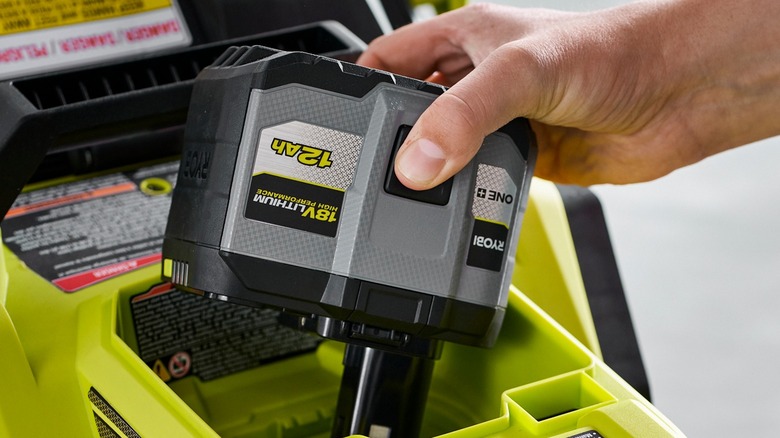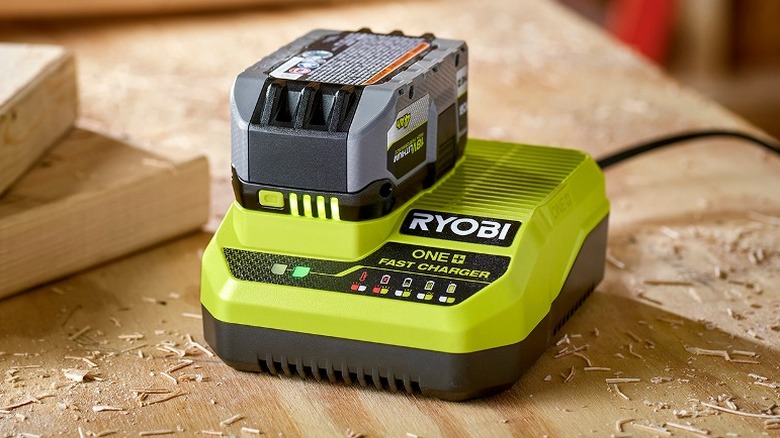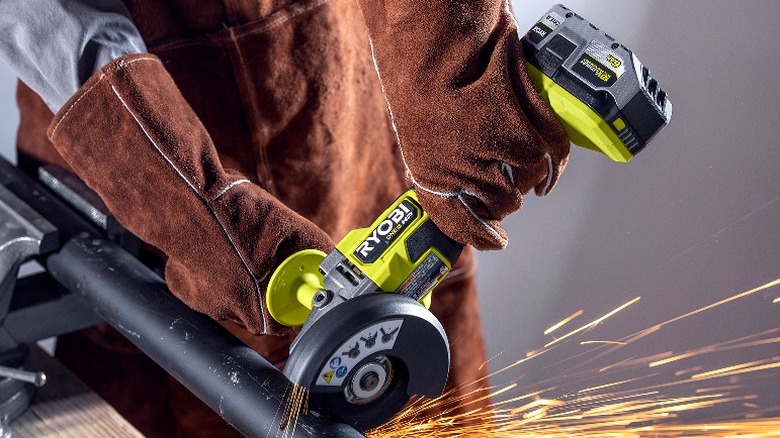How Long Does It Take To Fully Charge Ryobi Batteries (And How Long Do They Last)?
Power tool batteries are expensive, but choosing the right battery system is an important step in deciding which brand of power tool you're going to go with. Many a-craftsperson has found that picking a single battery system and sticking with it is a wise financial decision. This allows you to save money in the long run since these batteries are typically interchangeable across many of the tools manufactured by a single brand. So by sticking with a single system, you won't have to buy a new battery every time you buy a new tool.
Ryobi is one of the most popular power tool brands on the market. The company has an excellent lineup of affordable tools for everything from woodworking and auto repair to gardening and home cleanup. One of the main reasons that Ryobi has grown into such a competitive force in the power tool market is its One+ battery system. These lithium-based batteries are used by over 280 Ryobi products. They are also interchangeable across Ryobi tools that use batteries of the same voltage, meaning a single battery can power hundreds of different tools. You might want to know a bit more about these batteries before filling your toolbox with a bunch of green products though.
How long does it take to charge Ryobi batteries?
One of the key questions to ask yourself when considering a battery system is how long these batteries take to charge. It seems like a simple query, but there are actually a few factors to take into account before you can get any sort of measurable answer. The first is that Ryobi makes batteries with several different ampere-hour capacities. Some of them can store more electricity and therefore take longer to fully charge. The second is that different chargers may affect the rate at which these batteries can be charged.
Budget Tool Reviews timed how long it would take to recharge a fully drained 18V 4Ah One+ battery using a Dual Chemistry IntelliPort Charger. They found that it took just shy of an hour and twenty minutes (approximately 20 minutes per Ah) to completely charge the battery from zero. These results fall in line with the company's promise that the charger can juice up a 1.5Ah Ryobi battery in 30 minutes. This suggests that a 6Ah battery would require about 100 minutes to charge and an 8Ah battery would need two hours on this charger.
Other chargers may yield different results, however. YouTuber DrB DIY tested the stock charger and found that it took 45 minutes to charge a 1.5Ah battery. That's a full 50% slower than the Dual Chemistry IntelliPort Charger. On the other hand, Ryobi now makes high-performance 'Fast Chargers' which it proclaims charge batteries two times faster. These are definitely recommended for batteries with high Ah capacities.
How long do Ryobi batteries last?
Much like with charge times, there are a few factors to consider in terms of how long each of these batteries lasts. Higher-capacity batteries will last longer since they are able to store more energy. Therefore an 8Ah battery should last about twice as long as a 4Ah battery. Different tools also require different amounts of power to operate. You'll probably have a much longer runtime on a battery-powered lantern than you would on a chainsaw. With those caveats in mind, there have been a few independent tests performed on the runtimes of these batteries.
Live Free and Tool On tested how long a Ryobi 40V 6Ah battery and 40V 12Ah battery could power a leaf blower. This is a good test because fan-based tools have a tendency to have a more even draw on power. They found that the 6Ah battery lasted 14 minutes on the leaf blower's highest setting while the 12Ah battery lasted 24 minutes. They pointed out that the runtime in the larger battery wasn't quite twice as long, but that the higher amperage battery seemed to make the leafblower stronger in spite of them both being 40Vs.
Ryobi has also recently announced that its new 8Ah and 12Ah 18V lithium High-Performance batteries "deliver more power and up to eight times more runtime on Ryobi One+ tools." That's certainly a hefty promise, though there hasn't been much independent testing on these new batteries' runtimes as of yet.


